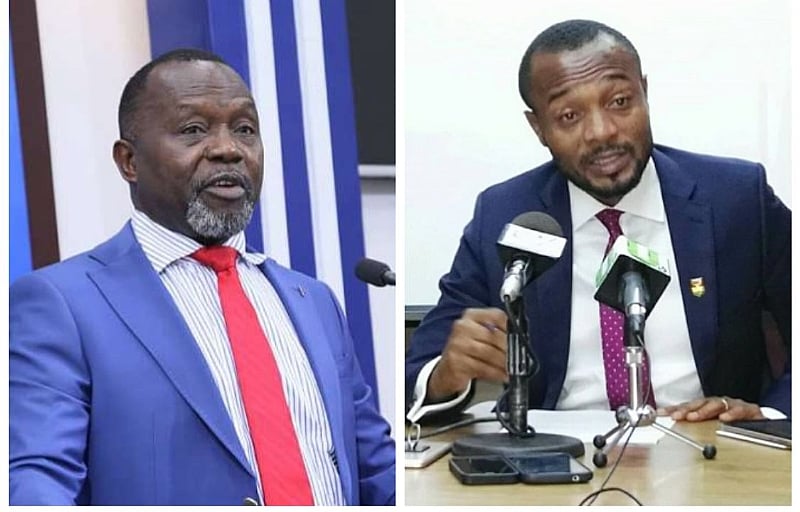The political landscape in Ghana has been rocked by allegations of bribery and corruption involving a Member of Parliament (MP), the National Service Authority (NSA), and a cover-up of a ghost names scandal. The accusations, brought to light by Attorney General Dr. Dominic Ayine, allege that the former CEO of the NSA, along with other officials, paid an MP to suppress media coverage of the scandal, effectively burying it from public view. This alleged act of corruption has ignited a firestorm of demands for transparency and accountability, with calls for the Attorney General to disclose the identity of the MP involved. The affair has raised serious questions about the integrity of Parliament and its members, and has further fueled public distrust in the political system.
The controversy began with Dr. Ayine’s statement during a media engagement, where he revealed the alleged payment to the MP. According to Dr. Ayine, the payment was made in November 2024 with the specific intent of silencing the media and protecting the implicated NSA officials. This revelation immediately sparked outrage and calls for action. Jerry Ahmed Shaib, the Member of Parliament for Weija Gbawe, challenged Dr. Ayine to publicly name the accused MP, asserting that such an act of corruption should not be allowed to go unpunished. Shaib’s challenge underscored the growing public demand for transparency and accountability within the government.
The Media Foundation for West Africa (MFWA) echoed these sentiments, issuing a statement expressing their deep concern over the allegations and emphasizing the importance of uncovering the MP’s identity. The MFWA argued that MPs are entrusted with protecting public funds, not facilitating their misuse. They stressed that withholding the MP’s name would cast a shadow over the entire Parliament, further eroding public trust. The MFWA’s call for transparency aligns with the broader public demand for accountability from elected officials.
The central issue revolves around the Attorney General’s claim that a sitting MP accepted a bribe to stifle a story exposing corrupt practices within the NSA. This alleged act of corruption strikes at the heart of democratic governance, undermining the public’s trust in their elected representatives and the institutions they serve. The alleged cover-up not only protected those responsible for the ghost names scandal within the NSA but also prevented the public from learning the truth about the misuse of public funds. The potential damage to public trust and the integrity of Parliament cannot be overstated.
The demand for the Attorney General to reveal the MP’s identity stems from the critical need for accountability and transparency. By naming the individual, the public can hold them responsible for their actions and ensure that appropriate legal and ethical consequences are pursued. Furthermore, revealing the MP’s identity would allow for a thorough investigation into the extent of the alleged corruption and the involvement of other individuals or institutions. This transparency is crucial for restoring public trust and demonstrating that corruption will not be tolerated.
The allegations surrounding the NSA ghost names scandal and the alleged bribery of an MP represent a significant challenge to the integrity of Ghana’s political system. The calls for transparency and accountability from various individuals and organizations, including a sitting MP and the MFWA, highlight the public’s growing intolerance for corruption and their demand for ethical leadership. The Attorney General’s decision on whether to disclose the MP’s identity will have far-reaching consequences, impacting public trust, the integrity of Parliament, and the future of anti-corruption efforts in Ghana. The situation remains tense as the public awaits the Attorney General’s response and the potential unraveling of a potentially damaging political scandal.


